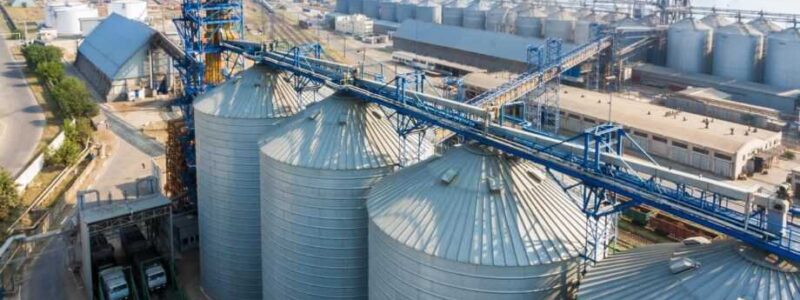
Kernel, one of Ukraine’s largest agricultural holdings, reported net income of $41 million in the third quarter of fiscal year 2025 (January-March 2025), compared with $101 million in the same period of fiscal year 2024.
According to the quarterly report published on the company’s website, Kernel’s consolidated revenue in the third quarter of FY 2025 reached $1.145 billion, up 14% compared to the same period last year, but remained at the previous quarter’s level.
“These results were achieved thanks to high sales prices, and the increase in grain exports offset the decline in revenues from the sale of bottled oil,” the company explained.
The group’s sales expenses increased by 27% compared to the same period last year, to $984 million, due to higher raw material costs and reflecting increased competition for raw materials and supply constraints.
Gross profit for the third quarter of fiscal year 2025 was $137 million, down 34% from the same period last year, reflecting lower margins in the oilseed processing and infrastructure and trading segments.
Kernel also notes that during the reporting period, the company’s EBITDA amounted to $110 million, which is 6% less than in the previous quarter and 31% less than in the previous year. At the same time, the oilseed processing segment generated EBITDA of $36 million, down 26% from the previous year, due to lower sales volumes and margin compression as a result of a relatively low sunflower seed harvest in Ukraine.
EBITDA for the Infrastructure and Trade segment fell by 46% compared to the same period last year, to $62 million, of which $26 million was generated by Avere’s trading activities, and the remaining $36 million was earned from the value chain of grain and edible oil exports in Ukraine, The main factors affecting the results were export terminals and grain trading operations.
It is noted that in the third quarter of fiscal year 2025, the Agriculture segment recorded EBITDA of $34 million, 2.1 times more than last year. This figure also includes non-cash losses of $24 million related to the revaluation of biological assets, compared to losses of $25 million last year.
According to the report, cash inflows from investing activities amounted to $25 million (in the third quarter of 2024, there was an outflow of $127 million), mainly reflecting $46 million in proceeds from the sale of financial assets previously used to manage excess liquidity, while $19 million was used to purchase fixed assets.
Kernel notes that during the reporting period, after the peak of working capital financing, it repaid a significant portion of its debt, including full repayment of its debt to the EBRD and pre-export financing for sunflower oil, as well as early repayment of part of its outstanding debt to the EIB.
As a result, during January-March 2025, the group’s debt obligations decreased by $190 million to $755 million. In addition, the company received an extended waiver from one of its long-term lenders, which is valid until June 30, 2026.
This allowed Kernel to reclassify them as non-current liabilities, which improved financial stability. As of March 31, 2025, the group’s cash balance was $549 million, down 11% from the previous quarter. This led to a 37% reduction in net debt on a quarterly basis to $206 million.
The company also notes that for the third quarter of 2025, commodity inventories decreased by 16% to $371 million as of March 31, 2025.
The report also indicates that for the first nine months of this fiscal year, Kernel increased its net profit by 7% to $218 million, with revenue growing by 19% to $3.092 billion, and EBITDA increasing by 4% to $398 million.
Before the war, Kernel was the world’s leading producer of sunflower oil (about 7% of global production) and its exporter (about 12%). It is one of the largest producers and sellers of bottled oil in Ukraine. In addition, it is engaged in the cultivation and sale of agricultural products.